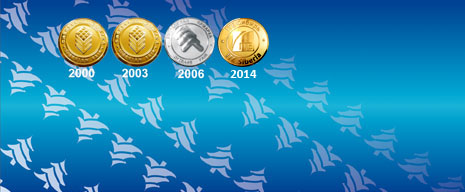 |
 |
Research quest
Studying Chinese as a Foreign Language Within the Framework of Russian-Chinese Cooperation
Nowadays, in the globalized world, Standard Chinese has become an influential and universal language, being the second most important language in the world after English. It is not surprising that the number of people wanting to start learning Chinese is growing so rapidly. Since the end of the last century, there have been departments for training Chinese language teachers in Russian universities, where you can study the language in combination with a second subject in order to obtain the profession of a Chinese language teacher.
School Physics Experiment: Studying Alpha Particles
The purpose of this article is to discuss the problem of teaching the basics of nuclear physics in a school course. Based on the analysis of numerous sources on the school demonstration experiment, the authors consider the use of demonstration equipment in the study of the topic «Elementary particles». The main objectives of the article are to improve the situation with the observation of the properties of alpha particles, that is difficult to reproduce in practice, and to compile methodological recommendations for working with such equipment.
Preparing Future Teachers for the Use of Artificial Intelligence Systems in Professional Activities
The article covers the problem area of developing competencies in the field of artificial intelligence among students of pedagogical specialties. The datebase of the ascertaining experiment conducted among students of pedagogical specialties of the Kuzbass Humanitarian-Pedagogical Institute of Kemerovo State University (KHPI KemSU) in 2023 testified to the insufficient preparation of future teachers for the use of artificial intelligence systems in the educational environment and, as a consequence, the need to introduce a special discipline into the educational environmental preparation.
Features of Educational and Methodological support Development of Teacher Professional Mobility
To confirm the relevance of the research topic, a multi-scientific analysis of scientific and educational literature was made. It was possible to identify the following: professional mobility as a subject of scientific interest in pedagogy has been studied for more than thirty years. The emphasis in defining this concept has shifted from representing mobility as a process to thinking about mobility as a personal quality, personal potential. This gives reason to assume that pedagogical influence can be exerted on its development.
Professional Readiness of Future Teachers to Use Modern Digital Technologies in the Educational Process: Problem Statement
The article discusses the relevance of preparing future teachers for the use of digital technologies in their future professional activities. The author used theoretical research methods: study and analysis of literature, data synthesis, specification; as well as empirical methods: pedagogical observation and survey. Based on the analysis of the literature, the concepts of professional readiness, digital literacy and digital competence were revealed. The survey was aimed at identifying the readiness of future teachers to use digital technologies in the educational process.
Foreign Language Teaching in Multi-Level Language Groups of Engineering Students
Problem statement. One of the goals of institutions of higher professional education is to improve the quality and significance of foreign language education, which contributes to the formation and development of both foreign language communicative competence and multicultural picture of the world of graduates. The aim of this paper is to study and analyze the peculiarities of organization and methods of foreign language teaching for professional communication in a multi-level group. Methodology.
Conceptual Foundations and Educational Model of the Formation of Linguistic and Socio-Cultural Competence of High School Students
The purpose of this study is to theoretically substantiate the practical aspects of the formation and development of linguistic and socio-cultural competence of high school students with the help of authentic texts used in foreign language lessons.
Features of Comparative Approach to Conducting Linguodidactic Research
The article discusses the features of conducting a linguodidactic research at the present stage of the development of linguodidactics, taking into account the tasks it facing. The authors emphasize the relevance of linguistic didactic research, which is carried out by comparing educational systems, including foreign language educational system, or certain aspects of the process of teaching a foreign language in different countries. This type of linguodidactic researches is becoming the most relevant and contributes to the development of linguodidactics as a science.
The 4K Concept as an Idea to Describe the Technology for the Formation of Universal Skills
The transition to the process of digitalization and training of personnel for the modern economy in a changing labor market has actualized the problem of the formation and implementation of universal skills in the digital educational environment. The article presents an approach to applying the case-study method in the format of network seminars (online) for teachers of secondary vocational institutions.
Digital Environment as a Means of Dialogue in Education
The problem and the goal. The article focuses on the development of intellectual and mathematical abilities of schoolchildren that function within the digital educational environment. Two sides of the abilities being formed are highlighted: cognitive and emotional-value ones developed due to the dialogical format of discussing the search for solutions to complex mathematical problems. The purpose of the study is to present ways to motivate schoolchildren to solve complex mathematical problems using a dialogical learning format.
- « первая
- ‹ предыдущая
- 1
- 2
- 3
- 4
- 5
- 6
- 7
- 8
- 9
- …
- следующая ›
- последняя »
Сайт поддерживается в Новосибирском институте повышения квалификации и переподготовки работников образования и является участником Новосибирской открытой образовательной сети